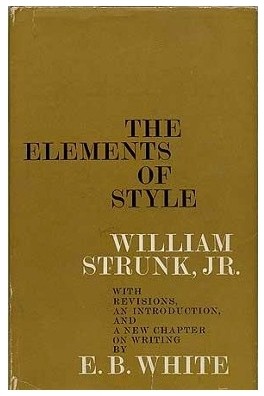“Good writing is lean and confident.” (William Zinsser, author of 19 books, including the classic On Writing Well)
If you aspire to lean and confident writing (and who wouldn’t?), then you’ll make every effort to avoid populating your prose with superfluous words. Simply put, in the most effective writing or communication, the communicator makes every word communicate. One of the finest examples of such full-on communication is Lincoln’s Gettysburg Address. In 272 masterful words, our 16th president…
- Redefines American ideals
- Repositions a bitter war
- Eulogizes the Union dead
- Dedicates a new national cemetery
As copywriters and content marketers, none of us will be called on to accomplish such lofty aims. Nevertheless, we should aim high, for that in itself has its own rewards. To quote advertising great Leo J. Burnett, “When you reach for the stars, you may not get one, but you won’t get a handful of mud either.”
For leaner, harder-working content, write less
French philosopher and mathematician Blaise Pascal memorably wrote: “I would have written a shorter letter, but I did not have the time.”
It takes time to compose clear, concise, compelling content.
 The good news is that there are proven guidelines you can follow to speed up the process of producing a polished final draft. Most of those guidelines can be found in the timeless classic, The Elements of Style, by Strunk & White. (If you don’t have a copy of this 85-page gem, stop what you’re doing and order a copy right now.) [Also recommended: Ann Handley’s Everybody Writes. Think of it as the Elements of Style for a content marketing age—Ed.]
The good news is that there are proven guidelines you can follow to speed up the process of producing a polished final draft. Most of those guidelines can be found in the timeless classic, The Elements of Style, by Strunk & White. (If you don’t have a copy of this 85-page gem, stop what you’re doing and order a copy right now.) [Also recommended: Ann Handley’s Everybody Writes. Think of it as the Elements of Style for a content marketing age—Ed.]
Style element No. 17, found in chapter two of Elements, “Principles of Composition,” is this: Omit needless words.
In this section, Strunk & White state: “Vigorous writing is concise. A sentence should contain no unnecessary words, a paragraph no unnecessary sentences, for the same reason that a…machine [should have]no unnecessary parts.” They go on to explain: “This requires not that the writer make all his sentences short…or avoid all detail…but that every word tell.”
Make every word tell is as good a principle for copywriters and content marketers to follow as any I’ve come across. Because if we consistently make every word tell, our copy can’t help but have less flab and gab and more muscle and hustle—which means more views, more reads, more shares, and, most important, more sales.
Removing flab from your content requires effective, dispassionate editing; and by dispassionate I mean downright coldhearted about what to leave in and what to leave out. (In more than one instance, the editor in me has killed a turn of phrase that the writer in me considered quite clever.)
Here are three good questions to ask yourself when editing your work:
- Does it tell?
- Does it serve the content?
- Does it serve the reader?
And here’s a simple, effective tip that can help you make edits: Read your content aloud.
When you read your copy out loud, you can check whether it reads the way you hear it in your head. And whenever your words don’t “flow trippingly off the tongue,” you have editing to do. Because if the words don’t flow smoothly for you—and you wrote them—your readers will have even more trouble with them. (After more rounds of editing than I’d care to admit, I just took my own advice. And in doing so, I made an additional edit.)
Avoid these seven fatty phrases
To help ensure muscular, confident content, be alert to fatty phrases. Here are a few of the more common ones that can clutter up your copy:
- At the end of the day. I swear, if I see or hear another coach, jock, sportscaster, or commentator use this vacuous phrase again I’m going to… just have to put up with it. Because it’s ingrained into the vernacular, along with the equally vapid, “going forward.”
Case in point: during the last baseball season, on the way home from the gym one morning, I was listening to ESPN Radio and Trey Wingo made this comment about a play in the previous night’s playoff game: “At the end of the day, he still had to make a split-second decision.” (The glaring paradox of “end of the day” and “split-second” made me laugh.) See also Mark Zuckerberg: “At the end of the day, this [data breach]is my responsibility.”
Highly common in spoken communication, it also appears in edited writing, such as this headline from the Salt Lake Tribune: “There’s so much wrong with Wanda Barzee’s release, but
at the end of the day,she did her time.” - In the process of. This phrase is pure fat; avoid it. Here it is in an article, “The Twenty Most Common Software Problems”: “Fortunately, there are tools and techniques that help
in the process of peeling[peel]back the layers of the unknown system structure and function.” And in another, “How Organizations Can Reinvent Procurement,” “For example, a few years ago we worked with a consumer products company that wasin the process ofdesigning a new product.” - In the course of. During or while expresses the same thought in three fewer words: Example: “
In the course of[During] this procedure, the following data is collected and stored, without any action on your part.” - Due to the fact that. Here’s an opportunity to replace five words with one: because. A sharp-looking website smartly opines, “The most pervasive reason content marketing doesn’t work for a small business is
due to the fact that[because]a strategy was never developed.”Also: for the reason that; owing to the fact that; on the grounds that.
- In the near future. No need for four words when one will suffice. If it occurs in the near future, it’s happening soon or shortly. From Harvard Business Publishing: “To support transformational change the company wanted to engage
and tap into(redundant)their[sic][its]key, high-potential(redundant) mid-level leaders, consideredby their business units(redundant) to be in thegreatest[strongest](better descriptor) position to make business impact either currently orin the near future[soon].” (Obviously, I couldn’t resist additional editing.) - On a […] basis. Usually a sure sign of verbosity, these three words turn up regularly in such phrases as on a regular basis, on a daily basis, on a professional basis, and the like. Here’s an example from a UK recruiting firm: “Once a candidate is detected, we approach him or her
on a personal basis[personally].” And another from a tech firm’s blog: “It wasn’t until I started using both technologieson a consistent basis[consistently]that I realized just how different they are.” - In point of fact. Another fatty phrase that can be reduced to one or two words: actually, or in fact. From an IBM whitepaper: “
In point of fact,[Actually], the reality of business analytics in terms of affordability and accessibility is much different from the perception of many midsize organizations.”
(For a PDF of seven more fatty phrases to avoid, email me at enicastro@positiveresponse.com with the subject line “7 More.”)
Of course, not all wordiness is as easily identifiable as the above. But as you hone your clutter-detection skills, the better you’ll become at spotting opportunities to tighten and polish your content.
For instance, the following line from a whitepaper on writing case studies gave me pause: “If you can wrap your case study into a compelling and credible story, you’re all but guaranteed to create a highly effective piece of content.” It’s passable as it stands, but the “wrap…into” and a couple of other parts didn’t sit entirely well with me. My edited version of the line reads: If you present your case study as a compelling and credible story, you’re certain to create highly effective content.
Make your content marketing work harder: Write less. Say more.
If I had to reduce the advice of this article to its most pertinent point, it would be this: Write less. Say more.
As Mark Twain wrote: “Anybody can have ideas—the difficulty is to express them without squandering a quire of paper on an idea that ought to be reduced to one glittering paragraph.”
In aiming for the stars—and glittering paragraphs—strive for content that is lean, vigorous, confident, concise. Because the leaner, more vigorous, more confident, and concise your content is, the more focused, readable, and effective it will be. As a result, it will work harder and produce better results.
–
This article first appeared in www.marketingprofs.com
Seeking to build and grow your brand using the force of consumer insight, strategic foresight, creative disruption and technology prowess? Talk to us at +9714 3867728 or mail: info@groupisd.com or visit www.groupisd.com




